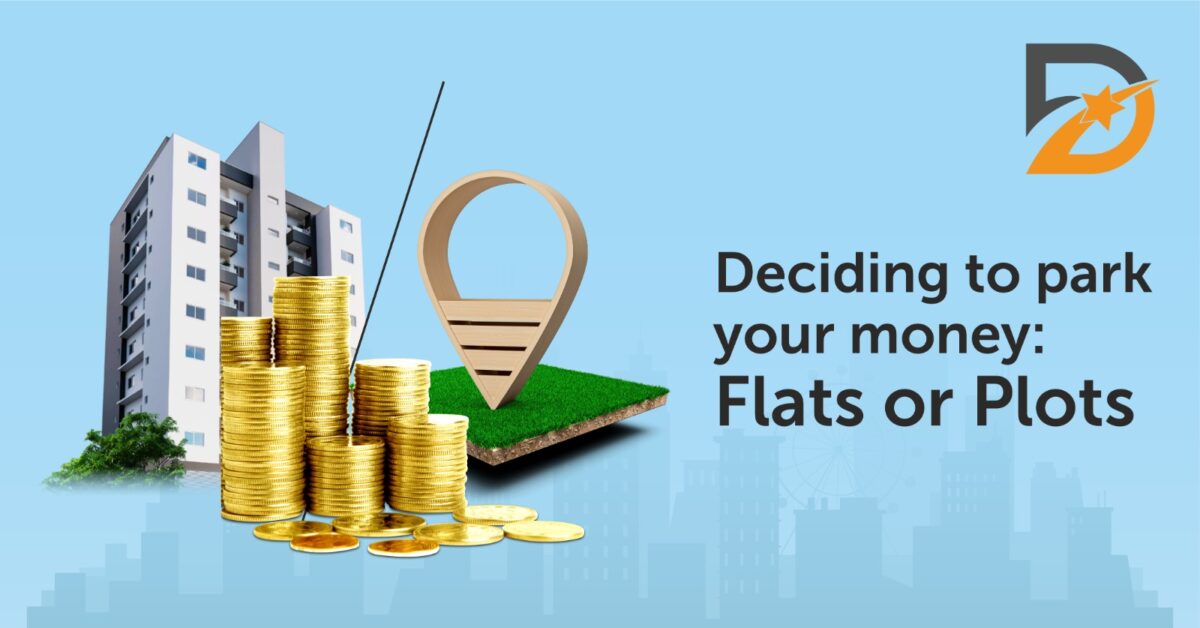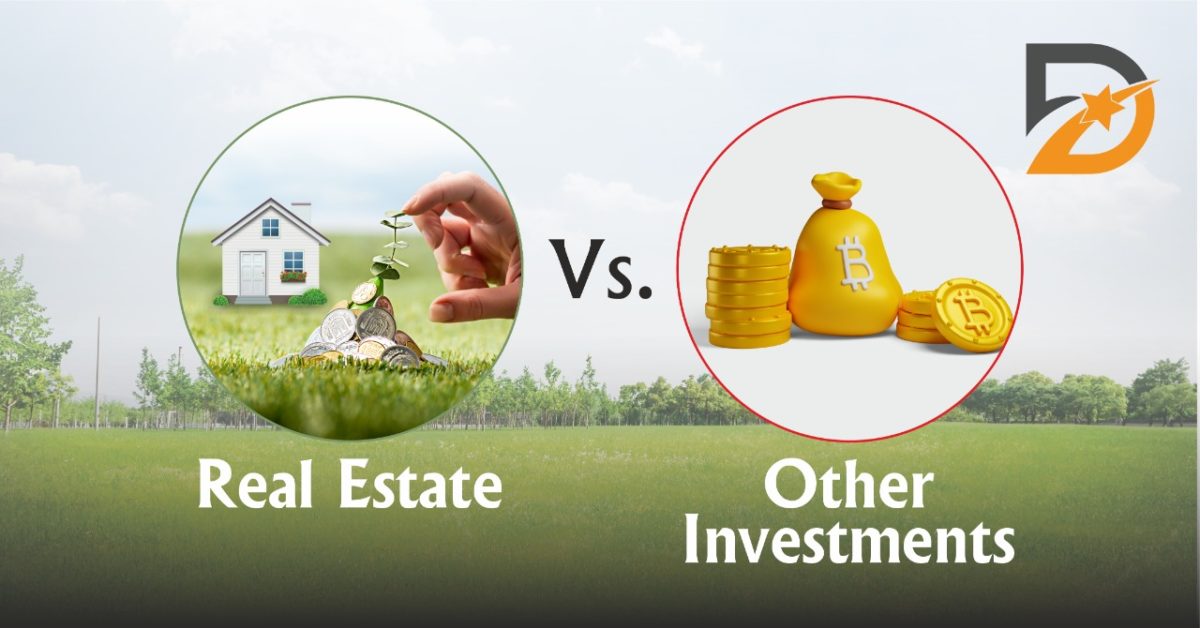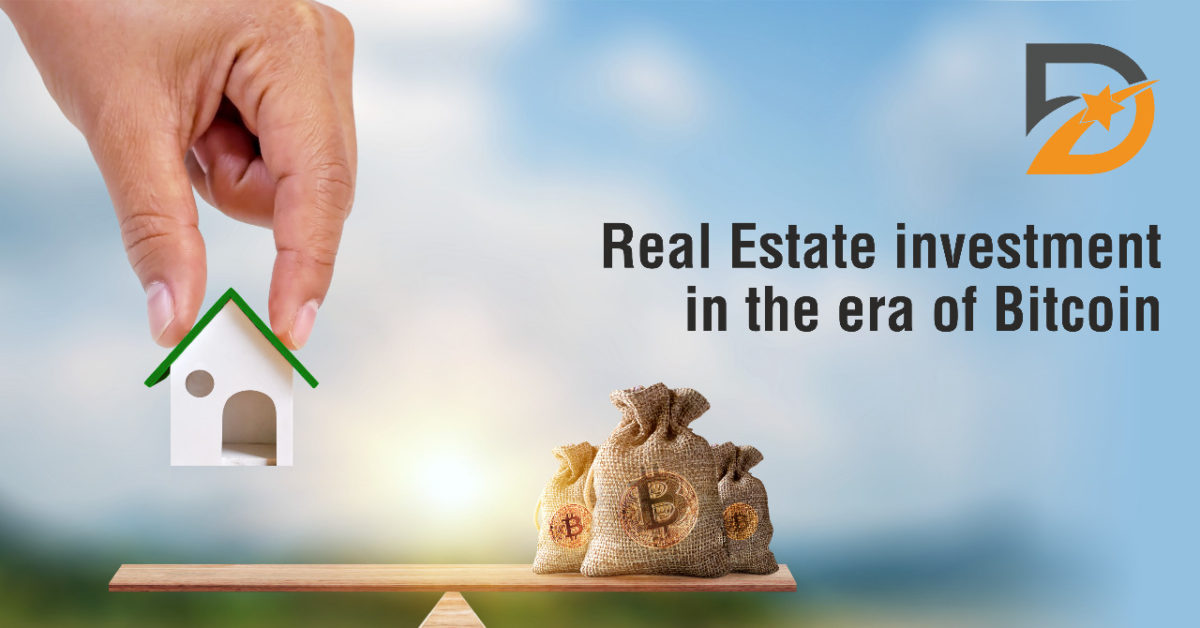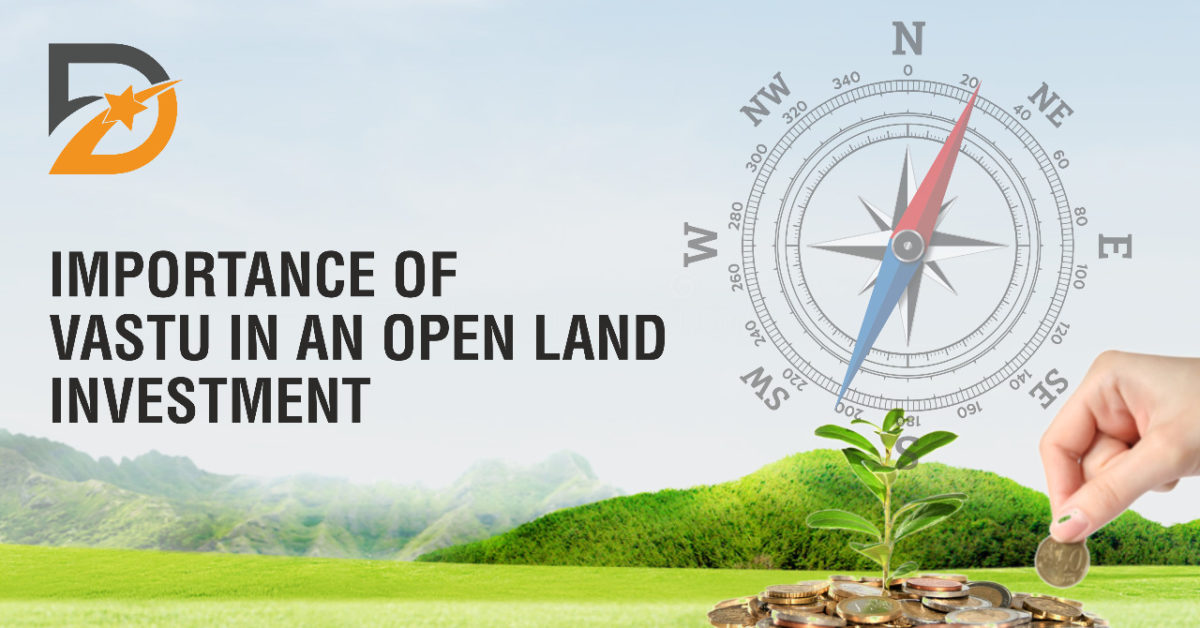As a result, investors are always on the lookout for low-risk strategies to boost their holdings. When it comes to real estate, there is plenty of room for creative speculation. Putting money into real estate is no easy task. You should be aware of the potential dangers before becoming engaged.
If you’re diligent and patient, though, real estate can be a highly profitable investment. Despite the inherent dangers and costs, real estate investment is a safer bet than more conventional markets like the stock market.
Here, we look at some of the pros and cons of real estate investments.
Pros
1. Easy cash flow: If you acquire a property for investment purposes and decide to rent it out, you will receive rental income. This income source could be put towards the mortgage, saved for the future, or used for any number of other purposes.
2. Tax benefits: There are a number of deductions and credits you can claim on your taxes thanks to home loans. Purchasing a property is a wise investment, and the Indian government actively encourages this by providing tax breaks for mortgage interest payments under Section 80C.
3. Safe and Secure: As the value of real estate often doesn’t fluctuate frequently like that of other investments, buying it won’t keep you plagued with frequent checks and decision making. Investing in real estate provides a physical asset with measurable economic worth. Both personal and commercial use are viable options for getting the most out of your investment.
4. Value appreciation: It’s easier to make a snap choice to sell when the market is rising and your property’s value is increasing. Selling at a later date for a handsome profit after real estate value appreciation is common. Investment in real estate is secure since it generates a continuous income stream.
Cons
1. Suitable for long-term only: Real estate can’t be sold quickly for emergency funds. Buying and selling properties takes time, but if you’re patient, you’ll make money. Yet, you must have a long-term investment strategy, do your research, and diversify your portfolio.
2. Costs of maintenance: The owner must pay for property maintenance even if they rent it out. Property upkeep costs vary by types of properties. There are also entrance and exit costs. RERA guidelines vary charges for property registration and stamp duties by state.
3. Requires huge capital: If you want to invest in real estate, you should save up a lot of money for the down payment and closing costs as these have to be paid upfront while buying the estate.
In all, look for alternative options if you don’t know much about gold investment or equities. Real estate is the only investment where positives outweigh drawbacks and provide optimism in difficult times.
Deciding to park your money: Flats or Plots
One of the greatest purchases you’ll ever make is a home. However, it requires a sustained outlay of resources. Whether it’s your first time buying a home or you’re a seasoned pro, you’ll likely run into confusion when deciding whether to buy a plot of land or a flat.
Before making a decision, it is important to weigh the pros and cons, considering aspects like the accessibility of funding, the potential for large returns, tax advantages, etc. This article provides a more in-depth look at the advantages and disadvantages of these two types of property investments.
Below is a discussion of the main factors that might help you to make an informed decision:
Value enhancement: Flats and land, in general, will both increase in value over time. There will be more people in the neighbourhood and higher demand for your property as a result of the addition of any form of transportation infrastructure, be it a metro line or a road.
In general, the value of flats rises over time as rising rental yields cause their market price to grow. The value of plots tends to rise due to limited supply, and rapid infrastructure development—especially in larger cities—also causes increases in land prices.
Returns: How do earnings change between a plot and a flat? It is possible to earn rental revenue from a ready-made home immediately after purchasing it. But until you build a house on the land, you won’t see any rental money.
However, if you construct an apartment building on your site and sell the flats separately, you can expect to see substantial profits over time.
Modification: A piece of land does not degrade with age, but a flat may. As a result of normal wear and use, it’s not uncommon for homes to need some sort of repair work, such as a renovation or even a complete rebuild.
A flat cannot have its size increased or its layout altered in the future. Plots, on the other hand, provide more options for the type of building that may be constructed on them, whether it be a home or a commercial establishment.
Taxation: Those who use a house loan to purchase a flat are eligible for a tax break of up to Rs. 1.5 lakhs on the principal amount they pay. On top of that, you can write off interest payments of up to Rs. 2 lakhs. Deducting interest paid on a plot of land is only possible once the building has been finished.
Which one is better?
Both plots and flats have their benefits and drawbacks, so it’s important to weigh them both before making a decision. Invest in a piece of land in a desirable area if you have limited cash for investment. You should expect a big return on your investment because they appreciate at a higher rate than flats.
With plots, you get higher flexibility to build a structure of your own choices and preferences. Hence, plots offer more autonomy.
Moreover, in contrast to flats, where ownership may not be obtained for months or even years, the land is typically ready for possession. Your plot will likely be ready for possession before a flat if it is located in a township.
Tips to be selective and Smart in the Year 2023 Investments
We are all anxiously anticipating 2023 and expecting that it will provide some much-needed relief and stability to the real estate market after two turbulent years. The good news is that most analysts believe that over the course of the next year, the market will shift from being a seller’s market to one that is more neutral. Accordingly, the sharp increase in property prices and mortgage rates will eventually come to a stop. However, the repercussions of the trends from 2020–2022 will still be felt by people looking for profitable investment opportunities in 2023.
Therefore, amidst all of this, we are sharing four simple tips investors may take right away to get ready for real estate investment in 2019.
1. Set up your funds.
The first step in real estate investing is always to understand your finances. Examine your current savings, income, and outgoings and consider how you believe these may change in the upcoming years. Then, based on your current financial situation, you should evaluate how much you can invest in an investment property. The down payment, other closing costs, monthly mortgage payments, and other upkeep costs should all be included in your budget.
2. Looks for affordable lending alternatives
The financing strategy you utilized to purchase your investment property has a big impact on its viability and profitability. Because of this, you must start looking for financing solutions immediately if you want to make a real estate investment in 2023.
Secured loans, private money lenders, crowdfunding, syndication, and partnerships are a few choices to consider. Proptech (property tech) platforms that provide financial solutions to real estate investors are on the rise, and they may undoubtedly make the process simpler and easier to understand, especially for beginners.
3. Keep an eye out for the top markets.
The local specificity of the real estate market received increased attention as a result of the outbreak. The experiences of secondary and tertiary markets are very dissimilar from those of primary markets. Many of the big city markets for long-term rents and ownership started to cool as people moved to smaller towns and cities with lower infection rates, laxer lockdown measures, and more affordable real estate costs. The rising popularity of working from home contributes to this national pattern. Similar to this, guests at short-term rentals frequently eschewed big cities in favour of rural places.
4. Include real estate tools in your Portfolio.
The one factor that has undeniably defined the real estate market over the past 20 years is the broad embrace of technology in all sectors of the sector. Even more significant than how technology is changing how real estate agents, brokers, and property managers conduct business are the consequences on investors.
Tech-based apps have revolutionized the search and analysis of property investments through the use of big data and AI. Through tokenization, they have boosted the number of chances for partial investments and even made it possible for small-scale investors to take part in commercial real estate crowdfunding.
In conclusion, we may anticipate that the 2023 real estate market will continue to be challenging. However, by following these four tips, investors can be better equipped to overcome these challenges and choose winning investments.
Factors that affect Farmland
Values
Almost two decades ago, farmland prices were consolidated with little to no buyers. One reason behind this could have been regulations for preventing land ownership concentration. Another reason could be that buyers had limited reasons to purchase land. However, looking at the present statistics, one can say that the times have changed and the outlook of buyers toward purchasing farmlands is continuously changing for the better.
The demand and supply in the market play a major role in deciding the prices for farmland. Demand greater than supply leads to higher prices while demand lesser than supply leads to decreased prices. Let us now take a look at some of the major factors that affect the demand for farmland and ultimately affect farmland prices:
1. Growing demand for houses: There are two things that make investors want to buy farmland. First, liberalization increased the number of jobs and incomes and made more people want to buy homes. Second, until the middle of the 1990s, almost everyone bought a house with cash. Around the year 2000, the credit housing market started to grow. This has brought a huge number of new people into the housing market. This has made land prices go up. As builders and buyers move to towns and villages, their demand drives up the prices of farmland faster than other financial and real assets.
2. Profitable Investment: Even investments in urban property haven’t done as well as those in farmland. Land that is only used for farming appreciates faster. This has made investors a second group of people who want to buy.
3. Commodity prices: When the prices of commodities like grains are low, the farmers lose their ability to spend much on land. This decreases the demand for land and leads to a decrease in prices.
4. Location: Location plays a key role in any real-estate purchase decision. In India, farmlands are mostly concentrated in rural or semi-urban areas that have little to no development. Still, people started buying land far from cities when they saw land prices in peri-urban areas going up because they thought they would make a lot of money when the city grew. In the same way, businesspeople in small towns knew they couldn’t buy land near big cities, so they started buying land on the edges of their own towns. Their bet is that rates can only go up because as the population grows, there will be less land to go around.
5. Soil type: If the quality of the soil of any particular farmland is good, it is likely to retain a value that is stronger and longer than land with low-quality soil.
6. Stock market: If the stock market is bearish, many investors look for alternative ways to invest their money for better returns. Investing in farmland is one such investment option. This too increases the demand and prices of farmland.
8 Tips for a successful Investment Decision
Investing the money, you saved up with a lot of hard work considerably gets you in a situation where you are set to keep it safe and bring in the best possible profits in your wallet. Making the right investment decisions is the key to achieving the same. In this article, we aim to give you the best possible tips on how to make successful investment decisions.
Know it all.
Before making any kind of investment decisions open the barricades of your cognition and let more knowledge get in. The more you research, the wiser you become in terms of making a decision.
Have a plan.
Making investments is a long-term process which requires adequate time frame management and the knowledge of the amount of risk the investor is ready to tolerate. Before arriving at a decision, don’t forget to have a plan that includes all that is required to get you profits in the long run.
Choose the right markets.
With ample markets out there to invest in, there are no shortages of options. However, one must preferably pick markets that offer more returns and lesser risk. While investing in stocks, one can be at a high rate of risk due to market fluctuations. Whereas, making open land investments can offer lesser risks while giving you better ownership facilities. However, as an investor, dividing your investments into different spheres can help you achieve a lesser risk potential.
Study the markets thoroughly.
Once you decide the type of investment you want to make, study the market and its ups and downs thoroughly along with how they work and what will get you the most out of your investment in that particular market.
Beware of scams.
Always double-check everything before signing agreements and making commitments. Investing is a professional sector and thus relying on someone based just on their behaviour or sweet talks can be a risky business. Check all documents and beware of scammers to keep your money safe and make the right investment decisions.
If it’s real estate, be real.
Real estate investments are more stable and ask for lesser hassles. A good study of real estate gives you enough insights on investing righteously based on land locations, the value of the property, investment horizon, expected cash flow or profits and of course the market functioning.
Selection of properties.
The one question you must always ask yourself before investing in real estate is what type of property you are willing to invest in. While an already-built property offers you different kinds of profits, an open land investment gives you more opportunities to expand your investment the way you desire.
Patience is the key.
As an investor one must be aware that investment in any kind of market takes a long time to bring you profits of considerable size. Sitting back and overseeing your investments while making the required modifications is the key to pocketing the most returns and the make best out of your investments.
Real Estate Vs. Other Investments
The primary goal of investing is to generate money. For a variety of reasons, people invest. While some invest to make a living, others do it to save funds for their retirement. It can be challenging to understand for individuals who are not accustomed with investing.
An investment is a major transaction, and investors will obtain their answers here so they can decide where their hard-earned money will be allocated, therefore it is imperative that they understand first which would be better for them.
Every investor focuses on and is knowledgeable about a particular niche. Investors can generate money in a variety of industries, including real estate investing, alternative investments, and traditional investments like jewelry. So, let us have an overview of real estate and other investments
Real Estate Investment Vs Gold and FDs
When an investor wants to avoid getting engaged in stocks, shares, and other financial instruments, they typically turn to gold or government-backed securities (FDs).
It is now even simpler for people to invest in gold whenever they want thanks to paper gold. In addition, because gold is a natural resource, its supply is depleting daily, thus it seems sense that its value would rise.
The asset’s high level of volatility as a result of its demand and supply matrix is unhealthy. Even for long-term investors, it can be challenging to determine the ideal timing to sell an asset when swings occur over a short period of time.
Similarly, the most basic types of investing tools one can access early in life are fixed deposits (FDs). The range of FD rates as of May 2022 is 3-6%. Though the return is not risky but too low to bring something good to you.
Real Estate Vs. Stock Markets
An invited portion of the company is what you purchase when you buy stocks. Generally speaking, there are two ways to profit from stocks: dividends and value growth when the company’s stock price rises. It is safe to suppose that more people are stock market investors, possibly as a result of the fact that stock purchases don’t require as much time or money.
You may have to pay a large sum of money down if you plan to purchase real estate.
Investors in real estate have the capacity to increase the leverage of their capital and profit from significant tax advantages.
Real estate may not be as liquid as the stock market, but the long-term cash flow it generates offers the possibility of appreciation as well as passive income.
Investors need to be clear about their investment objectives and the time frame they can afford to have their money invested in, in addition to the risk-return matrix that is involved. The best way to diversify your portfolio, reduce risk, and maximize returns is through real estate investing. A lot of investors invest in the above different types of areas, so keep that in mind.
Tier 1 or Tier 2 – Which cities are the best for investment?
For a while now, Tier 1 cities in India have been a top choice for real estate investors. The reasons are numerous and include a well-developed infrastructure, employment possibilities, standard amenities, and more. Real estate investment decisions have always involved a trade-off between tier I and tier II cities. Investors or owners should carefully consider their options before making a selection because both markets provide various advantages in terms of rental and capital appreciation.
To assist you in making a better investment choice, let’s now look more closely at the advantages and disadvantages of investing in the two categories.
Infrastructure
Tier 1 cities in India are a great choice whether you’re looking to buy a home to live in or rent out because they are highly developed and have outstanding infrastructure. They offer outstanding business environments thanks to their worldwide connections, making them a great choice for commercial real estate investments. Tier 2 isn’t as strong as metropolitan areas, but it’s not weak either. They have a decent infrastructure and are constantly attempting to make it better.
Style of Living
Tier 1 cities offer all the amenities required to live a good lifestyle, which makes them a fantastic option for real estate investors. They have top-notch transit options, reputable educational institutions, first-rate healthcare facilities, attractive career and business prospects, and fantastic locations to unwind.
In tier 2 cities, the cost of living is moderate, and the standard of living is adequate. These cities also have relatively low pollution levels and far better traffic conditions than often congested
urban areas.
Returns
You don’t have to wait very long before you start seeing results, unlike a tier 2 city. As soon as you invest in real estate in a Tier 1 city, you can anticipate seeing your money grow. Both commercial and residential properties are subject to this. You cannot anticipate quick returns because tier 2 cities are still in the development stage. Even if the value of the property is likely to increase over time, it can be some time before you start seeing a profit.
Property Affordability
The demand for real estate is significantly outpacing the supply in tier 1 cities, which results in high property prices. Therefore, not everyone can afford to own a property in a tier 1 city. In these cities, the cost of living is also fairly expensive. Whereas in a tier 2 city, you can discover a lot of beautifully built homes for an affordable price. In comparison to tier 1 cities, the costs of both residential and commercial properties are quite inexpensive in these cities.
In conclusion, tier 1 cities are a fantastic choice if you have a lot of money to invest and are hoping for quick returns. Tier 2 cities can be a decent choice if you have a smaller budget and are seeking a long-term investment option. Additionally, it is crucial to purchase a property in a city that is in your future plans.
Real Estate investment in the era of Bitcoin
Change is the new anthem of our world. It is something that has attached itself to almost everything and made it run faster and faster with time. To follow up with this hurried atmosphere around, everyone is thinking of ways to be at least one step ahead. And what could possibly be better than making an investment to step into the future? However, with this change in technologies, new ways of investment have been born and cryptocurrency is the one playing a major role and making people question the authenticity of a real estate investment. Allow this article to inform you why is it still a better decision to invest in real estate rather than Bitcoin.
What is Bitcoin?
Bitcoin is a form of crypto currency which is a digital asset created by codes and used for investment purposes and online payments. To acquire Bitcoin, one is required to exchange centralized currencies of a defined amount. These can be bought, sold or exchanged independently of banks and governments being intermediate and their transactions are recorded in the blockchain.
Is it worth investing in Bitcoin right now?
Even though the electronic currency is an ever-growing market in the present times, it holds its set of risks related to it. There was a time when investment in Bitcoin was the greatest topic of all among all generations; the market is now experiencing a downwards trajectory as a result of the increasing rate of interest, inflation and many other factors. Although Bitcoin reached its record high in November 2021 with its price reaching $69,000, it has now dropped to $18,000. While many people would argue about the notion of the market going up again, which could derive handsome returns, the fact is that cryptocurrency is still considered to be a risky asset among investors.
The authenticity of a Real Estate Investment
Investment in Real Estate comes with a whole lot of advantages in comparison with its cons. Real Estate investments are prone to lesser risks and offer long-term returns on investments. It offers tangible assets unlike Bitcoin and offers a higher cash flow with stability. An investment in Real Estate means you have the opportunity of making an investment in versatile areas such as open land which gives its investor the freedom of customization in the future. An open land investment requires no maintenance costs and a hassle-free possession, unlike other real estate properties. Although investment in real estate does not yield exceptionally higher returns, it is not as volatile as Bitcoin.
To conclude, while both these areas are subject to market risks, investing in Real Estate is still a safer choice than diving deep into the risk-prone zone of Bitcoin. While a good knowledge of how the crypto market works can help you secure a place in its market, it is still subject to market crashes which are avoidable in real estate investments such as open land investments.
Importance of Vastu in an open land investment
Originated from the Vedas, believed to bring peace and prosperity and what is commonly known all over India, as Vastu Shastra, is an age-old science of architecture. As most people strongly agree, the role of vastu in land and building is almost unavoidable. It is a science that is both practical and wondrous.
While building a plot requires adequate methods and precise thinking, the selection of land for an investment plays an equally important role. To fulfil this purpose to its best, the rules of Vastu have been used for ages. This article will inform you about these golden rules of Vastu that will help you make an open land investment without the hassle of going through pendulum-like thoughts.
First things first
If you are looking forward to going on one of those sprees of searching for the best land to invest in, you must consider the following Vastu tips:
1. It is better to avoid land that is near any kind of burial, cemetery or mausoleum.
2. Lands closer to a sewage or garbage dump can be avoided for a better atmosphere. After all, who wants a stinky environment?
3. A land facing a religious institution, a hospital or a nursing home should be avoided according to Vastu.
4. Consider investing in an open plot which does not have bigger plots or buildings on either side of it, to avoid the blockage of positive energies. However, investing in a land that has another empty land in its north or north-east direction will be a good idea.
5. Lands with trees, mountains or taller buildings present in its west or southwest direction are considered good according to Vastu.
6. Similarly, any kind of freshwater bodies on the east and north side of the land is considered very auspicious.
Auspicious plot shapes according to Vastu
After carefully considering the aspects mentioned above, one should take good care of the shape of the land before investing. Some of the good shapes according to Vastu are Shermukhi, Gaumukhi, a square plot and a rectangular plot. Let’s find out why these shapes are considered lucky.
Shermukhi
This lion-like shaped land is said to bring good fortune to the owner of the land. This shape has one broad and one narrow side at the far end and works best if its broader side faces in the north direction.
Gaumukhi
This is the shape that depicts the shape of a cow and is said to bring success and luck in the life of the owner. Like the lion-shaped land, cow-shaped lands are also best if their broader part is in the northeast direction with the narrow part in the northeast corner and not towards the east.
Square shaped
A square shape represents balance. All sides of a square-shaped land are equal and thus, signify harmony and balance. A square-shaped land does not have unequal or missing corners and is considered best according to Vastu. They are said to bring luck and prosperity and suit best for commercial and residential purposes or simply for an open land investment.
Rectangular shape
This shape is also considered adequate and is considered complete in Vastu. Similar to a square shape, these lands do not have any missing corners and a plot with a ratio of 1:2 or less might suit best for an open land investment.
Vastu as a shastra is a huge compilation of architectural rules and thus, contains much more. However, these Vastu tips are capable enough to guide you into making the right decision of making an open land investment.
Trending Alert : Virtual Reality in Real Estate
We are evolving at a breakneck pace in this modern age of technology, moving toward cutting-edge technology and inventive ideas to improve client experience.
In terms of sales, even the real estate industry is undergoing substantial changes. Virtual reality is one of the market’s most inventive methods.
Virtual reality is a computer-generated setting or setting that provides users with the impression of being in a virtual environment with realistic-looking scenes and objects. Although it looks to be true, augmented reality is a hoax designed to provide viewers with the illusion of realism. A VR headset and possibly even a helmet are used to produce virtual reality.
How does Virtual Reality function?
Virtual reality is a software-based simulation that gives users the impression that they are in a genuine environment. Virtual reality headsets, which are gadgets that replace our surroundings, are a key component of this. This is a sophisticated system that monitors your movements and interactions with the virtual environment. Gyroscopic sensors, accelerators, and magnetometers in VR headsets operate in tandem with our senses to offer a realistic experience.
Real Estate Using Virtual Reality
Real estate developers have been paying special attention to virtual reality, which is thought to symbolize the industry’s bright future in terms of sales. The real estate sales profession is already being transformed by virtual reality.
The primary motivation for creating virtual reality is to improve the sales process for open land luxury houses, off-market properties. You can use software to create the property while using virtual reality for real estate. The biggest benefit of this type of sales tactic is that your clients do not need to see the property in person. You may utilize virtual reality to sell real estate.
Virtual Reality on Open Land Investment
For your real estate, you can have a virtual reality property viewing. Your clients can explore the nuances of your property by using a VR headset. You don’t need to set up a 3 D model or endorse the expense of getting visitors to impress and convert those leads.
The buyer can get a detailed view of the open land via virtual reality, and then walk around inspecting every element. You may provide insight into every aspect of your property, from the layout to all the possible aesthetic options.
Why use virtual reality when we can simply make a spectacular film and snap some high-resolution images to convey the same information?
It’s difficult to capture minute details in a video or photograph, and the depth of field may mislead your viewers even more. Virtual reality may fill in these gaps, giving your buyers an experience that appears to be comparable to viewing the property in person. Virtual reality may fill in these gaps, giving your buyers an experience that appears to be comparable to viewing the property in person.
Conclusion
The key advantages of VR in the real estate market are cost savings. You do not need to invest in developing a model home to demonstrate the property’s shrewdness to your users. It also saves your buyers a lot of time and work because they don’t have to see the property in person. They are free to visit the property anytime they desire and as many times as they want to acquire a feel for it.You may be quite creative with your ideas in virtual reality, and you can build a layout that appeals to your target demographic.
Even though Virtual Reality has come a long way, there appears to be plenty of room for expansion.









